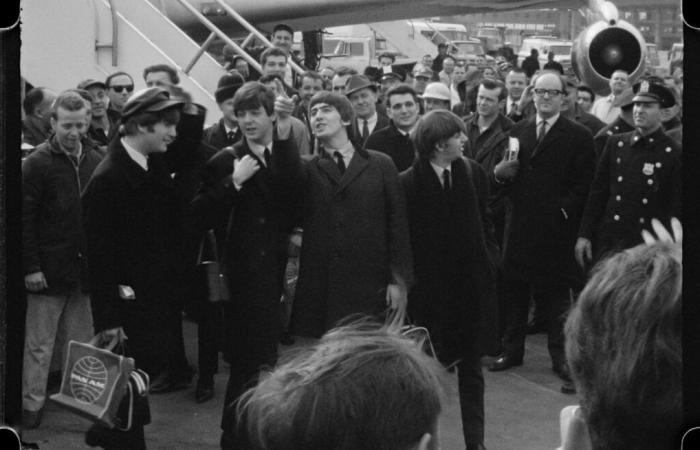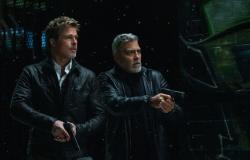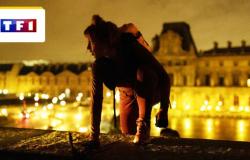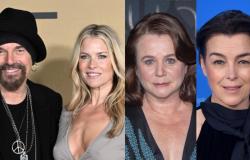60 years ago, the Beatles arrived in America. Celebrating the anniversary goes without saying. But by doing what? Don’t we, fans around the world, already have everything we need? For the 20th anniversary, the quarter century, the fiftieth anniversary of the invasion, have we not obtained something to relive the 14 days in detail endlessly? “That was the challenge,” summarizes David Tedeschi, the director of the documentary Beatles ’64in Zoom with Duty. Smiling and not at all surprised, David: after his docus on George Harrison and Bob Dylan, the problem is still the same. Big mandate, seemingly impossible mission. “When I heard about the project, that’s what I thought straight away: it’s a huge story, so widely told… But…”
What more could you want, indeed than the very definitive The Beatles: The First U.S. Visit by brothers Albert and David Maysles, two big hours of fabulous footage, a truth documentary, shot in the eye of the hurricane, the event as it is, from the inside and the outside? Apple, under the leadership of the late Neil Aspinall, released the DVD Essentials in 2003, complete with a big pile of movie scraps, and everyone was satisfied. We also have, in an impeccable DVD box set, the 240 minutes of the four complete broadcasts of the Ed Sullivan Show with the Beatles, including those celebrated in February 1964. And for the crazy atmosphere of the time, the salutary madness of Beatlemania, there is frankly nothing better than comedy I Wanna Hold Your Handdirected by the excellent Robert Zemeckis and produced by none other than Steven Spielberg, which features a group of young girls from New Jersey who want at all costs to enter the Plaza Hotel to meet the Beatles, and find tickets for the TV appearance on February 9.
Justifications and additions
What else can I say? What to show that is not already (very) familiar? But… what? Tedeschi provides context. “The Maysles brothers had this privileged access when they were not yet very well-known documentarians. Albert himself conceded later in life that their film was not sufficiently fan-oriented. This aspect, with the passage of time, seemed more interesting to him. We focused on this aspect. We could see, not only with the Maysles set drops, but also from all kinds of other sources, how articulate the fans were. »
It’s true. For example, we see a young girl who describes the “different” appeal of the Beatles, who did not like the provocative gyrations of Presley, clearly preferring the gentleness of the boys from Liverpool. “They had a lot to say, these young girls,” adds co-producer Margaret Bodde. “When we see them now, interviewed for our documentary, they are still positively marked by the experience. It changed their lives. »
Ce Beatles ’64it is also, and above all, the will of Apple and Disney+, with the approval of producer-filmmaker Martin Scorsese. In fact, the entire official Beatles team is there. Remixing official Giles Martin, son of the late Sir George Martin, is there to reconstruct in stereo the sound of the primitive mono recordings from CBS TV using technology developed by WingNut Films, Peter Jackson’s company which has already brought us given the big cleaning of the sessions Get Back. We were also able to isolate the vocal tracks in the commotion captured by the Maysles brothers.
Technology that helps and harms
Unimaginable clarity of sound, miraculous readability of conversations, chic then? Yes and no. THE Ed Sullivan Show in stereo, it distorts television reality. Pass again for the Washington show: it was inaudible before. The dialogues between Beatles, wherever they are, are revealing, the technology certainly gives access like never before to the content, but erases the ambient noise to such an extent that it flattens the emotion. Even outside, the fans are too easy to understand, due to lack of hubbub. It’s unusually quiet in the limousine, in the hotel suite. Everywhere. Even when it screams. An impossible calm reigns. Isn’t that too clear? “I think you underestimate the brilliance of the Maysles’ original sound recording,” Tedeschi responds. Disagree. Where is the radio, the TV that plays all the time, where is the life that beats so hard?
All this cleanliness, we understand, is at the service of the narrative thread. As if the story behind the story was missing: inclusive agenda 2024 requires, Tedeshi placed a lot of emphasis on the place of African-American artists. Nothing new here, it’s been said over and over again since 1964, the Beatles only swore by Motown and the R’n’B of Little Richard, Chuck Berry and co. In existing documentaries, it’s always front and center. Tedeschi wanted to prove it beyond the evidence, for the benefit of future generations. Great research work. “In the unreleased footage of the Maysles, we found all these young black fans in Harlem,” rejoices the director. Including, a nice moment, a young man who was “disgusted” by the Beatles, a fan of Miles Davis and John Coltrane.
Announce 1964 and not be satisfied with it
Added, to support the point, testimonies of the recognition of African-American artists towards the Beatles, a Ronnie Spector, a Ron Isley (of the Isley Brothers of Twist and Shout), a Smokey Robinson still enchanted with the Beatles version of his You Really Got a Hold on Me. We even unearthed a performance where the Smokey Robinson in question, in front of his Miracles, sings Yesterday. Extraordinary interpretation… Ed Sullivan Show in 1968. Oops. This documentary, to properly support its thesis (which is nevertheless clearly established in the history of popular music), does not pay too much attention to the year of its title. We would have done better to use the version of Can’t Buy Me Love by Ella Fitzgerald, published in the spring of 1964, when Beatlemania was in full swing.
The narrative thread justifies all the detours. We thus toured interviews with the separated Beatles of the 1970s about their beloved Marvin Gaye, Marvelettes and other Little Richard. Interviews that the average fan can quote in full: Lennon at Tomorrow Show by Tom Snyder, we’ve had this since the first VHS. The average fan is probably not the target customer. It is much more of a testamentary documentary, where the last witnesses still among us intervene between the archive segments with the disappeared. We often have the impression of being in the Beatles equivalent of those documentaries on the Second World War, with the last survivors of the camps. Seeing a Paul McCartney visit his own photo exhibition in the company of Martin Scorsese, with his voice increasingly veiled, resonates like a last opportunity seized. Welcome, of course. But not without a certain bitterness. The vitality of the times is sorely lacking.






